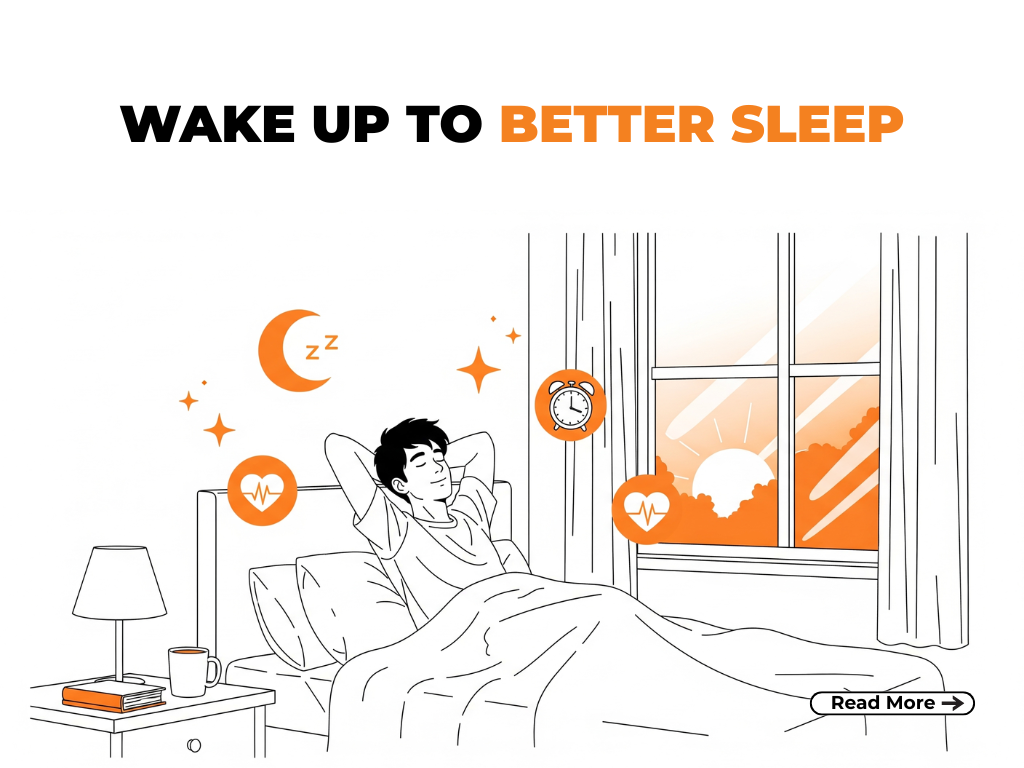Sleep is the golden chain that ties health and our bodies together.” – Thomas Dekker. In the lives of colleges and universities, meetings, due assignments, social sessions and watching a series of shows with types of Netflixs all conspire to put sleep strategies near the end of the action menu. Wearing the badge of an all-nighter becomes a badge of honor to many students. However, this is the truth here: your brain does not give its best when you are sleep-deprived, rather, it just functions worse.
The point is that sleep is not a luxury, rather quite the opposite. During sleep what Do You Do? Sleep is not a relaxing thing. That is when your brain can do the following: Store information (transform short-term memory into long-term knowledge), Detox toxics of the day (stress, chemical by-products, etc.), Balance emotions, allowing you to remain calm and concentrated, Boost immunity, keeping diseases away.
What occurs in the event, you do Not? Chronic sleep deprivation may result in loss of concentration and poor grades at school, Rises in stress and anxiety levels as well as irritability, More accidents due to impaired decision making, and Health complications which will be experienced in the long run such as obesity, diabetes and heart diseases. Research indicates that students who do not sleep more than 6 hours regularly score lower on academic GPA, have an increased risk of dropping out and experience more mental health issues.
Just How Much Sleep Do You Really Need? The quality of night sleep of young adults should be 7 to 9 hours a day. No, it is not substituted by coffee. Nor a sleep binge over the weekend.
Wake-up Call on Campus Culture Campuses should stop celebrating everything about all-nighters and burnout. Sleep awareness-raising and orientation programs, wellness, and academic policies can lead to healthier and more successful students.
Final Thoughts : Are you pulling an all-nighter to study or get a project done? Then, you should ask yourself: Will I still remember this tomorrow, or shall I only be tired? Losing sleep is not robbing any time away but rather is a link to your performance, health and future. Shall we switch the subject matter: Achievement does not necessarily imply loss of sleep. It entails how to be balanced, how to rest, and flourish.
So Far, We Talked About How You Disturb Sleep…
However this time around, how about this; what if it is the sleep that is bothering you? Most students suppose that they are simply fatigued after studying or working late. However, how would you feel about sleeping 7-8 hours and still feel like you are not getting enough sleep? How do you know when you have a bad concentration level, a very moody mood or you fell asleep in lectures yet you had a good night sleep? This may be beyond college life. It may be an unknown and ravaging sleep disorder known as Sleep Apnea.
Sleep Apnea: A Silent Intervener- Obstructive Sleep Apnea is an illness in which your air passage becomes partially or totally obstructed when you sleep. It makes you hold your breath momentarily for minutes at a time, sometimes repeatedly hundreds of times at night, which you may not realize. Whenever your brain awakens you (just to take another breath), it interferes with deep sleep. You might not recollect coming out of sleep but your body does.
Why It’s a Big Deal OSA is a very big deal it also causes chronic daytime sleepiness to the following extent: You feel like you did not sleep at all. You get unable to keep your eyes open in classes, You tend to be unable to focus during exams, You feel irritable or even depressed. It also adds to the chances of: Hypertension, Memory impairment, Weight gain, Heart disease and stroke. And yes it can kill you when it is not dealt with.
Typical Symptoms of Sleep Apnea in Adults- Your loud snoring, Waking up breathless, You feel that you have not rested despite 7-9 hours of sleep, During the day, you suddenly feel sleepy at school, behind the wheel or when you need to study, You do not always feel well, you can not concentrate on anything or have poor memory
What is the Risk of Sleep Apnea? Although sleep apnea disease may be attributed to older adults, its effects are not spared among young adults and students. Indeed, there are certain lifestyle and some physiological factors that can place college students at risk: High-Risk Groups: A person who is overweight or obese A person with fat around his neck that can congest the airway. Sedentary life among Students – The sedentary life and poor posture also lead to poor respiratory health. The people with big tonsils, and deflected nasal septum are affected, People who snore loudly, People who use alcohol or sedatives at bed time, People who have a history of the condition, Males are more affected and females are under-diagnosed.
What are the ways to prevent or deal with sleep apnea? The great news? With early awareness and proactive measures, sleep apnea can be dealt with and even preventable: Prevention & Lifestyle Tips: Maintain a healthy weight – Even small variations in the range of 5-10% can make a difference in terms of alleviating symptoms. Do not take alcohol or sedatives at night- these relax the throat muscles and enhance collapse of airways. Workout on a regular basis – Cardio, yoga, and breathing exercises build up respiratory capacity. Sleep on your side- Lying back on your back aggravates obstruction of the airways. And remain regular in sleep- A sleep-wake pattern is disrupted with disrupted circadian rhythm and makes symptoms even worse. Watch out caffeine and screen time – This slows down the time of getting sleep as well as decreases coverage time of deep sleep.
So What Can You Do? In case you or the friend feels these symptoms: don’t brush them off. Have a chat with the campus doctor or a sleep professional. It is easily diagnosed by a simple overnight sleep study (polysomnography).Correction can be by CPAP equipment, lifestyle modification, or by medical treatment.
Wake Up to Sleep Health
There is a lot to attribute tiredness to other than the real culprit in a busy student life. However, keep in mind that when your sleeping is ineffective, your health is not either. Sleep disorders, not just all-nighters, should be a routine thing to discuss. Since better grades, excellent condition, and an acute mind… all start with a better sleep.














